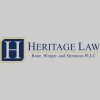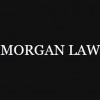
The attorneys at Grant Richman, PLLC combine their legal experience in the area of medical malpractice, Federal Tort Claim litigation, general negligence, nursing home negligence and abuse with the knowledge of estate planning, real estate and trusts and estates to provide clients in New York, North Carolina and New Jersey with a level of practice that is second to none.
We thank you for joining us. Please make use of all our facilities. Feel free to inquire about our specialties including our medical malpractice lawyers and national Federal Tort Claim Practice through our online attorney profiles. Learn about our practice, and about the cases and verdicts we have handled and are currently involved with.
We thank you for joining us. Please make use of all our facilities. Feel free to inquire about our specialties including our medical malpractice lawyers and national Federal Tort Claim Practice through our online attorney profiles. Learn about our practice, and about the cases and verdicts we have handled and are currently involved with.
Services
Grant Richman, PLLC is a law firm with offices in New York, North Carolina and New Jersey. The attorneys at Grant Richman, PLLC have been engaged in the practice of law for over thirty years.
The firm specializes in representing people who have found themselves in need of legal representation in litigation when issues surrounding health care delivery, including medical malpractice, denial of care, removal of care, drug product liability, and Federal Tort Claims Act litigation under the United States Code against the United States of America and its federal agencies, including the military, the Veteran's Administration Hospitals as well as the Public Health Service.
The firm specializes in representing people who have found themselves in need of legal representation in litigation when issues surrounding health care delivery, including medical malpractice, denial of care, removal of care, drug product liability, and Federal Tort Claims Act litigation under the United States Code against the United States of America and its federal agencies, including the military, the Veteran's Administration Hospitals as well as the Public Health Service.
I agree that by submitting this query and/or question I will not be charged for the response. I also understand that I am not forming an attorney-client relationship with your law firm. I agree that the above does not constitute a request for legal advice. I understand that I may retain your firm's services by entering into a fee agreement, and that I am not now entering into such an agreement.
The following are illustrative cases handled by lawyers in our firm over the past twenty-five years. Each case is unique and any statements regarding standards of medical/nursing care contained in these cases should be considered as illustrative statements which may or may not be applicable in a given situation.
Our estate planning attorneys assists clients in light of current estate law to ensure that property and assets are well protected during their lifetime and distributed in the future to provide for family and loved ones. Our attorneys will review, discuss, and offer recommendations regarding various estate planning options.
Our attorneys have extensive experience in representing military members and their families who have been injured by the negligence of the United States Government and its employees. Our attorneys have handled many cases of medical malpractices arising in military medical treatment facilities and Veteran's Hospitals through out the United States.
Reviews (1)
Ron S.
May 28, 2020
Report
Recently, a lawyer from this law firm in Newton, NC showed up at a family meeting concerning a trust where there were some disagreements. He was there representing one of the family members. Shortly after arriving, he became the "mediator" and basically engineered a new settlement. I don't understand how a lawyer who is representing one of the interested parties in a contract can become a "mediator". By taking these actions, he violated the wishes of a deceased relative. I am not sure there were any laws circumvented here....but...it is definitely unethical.





